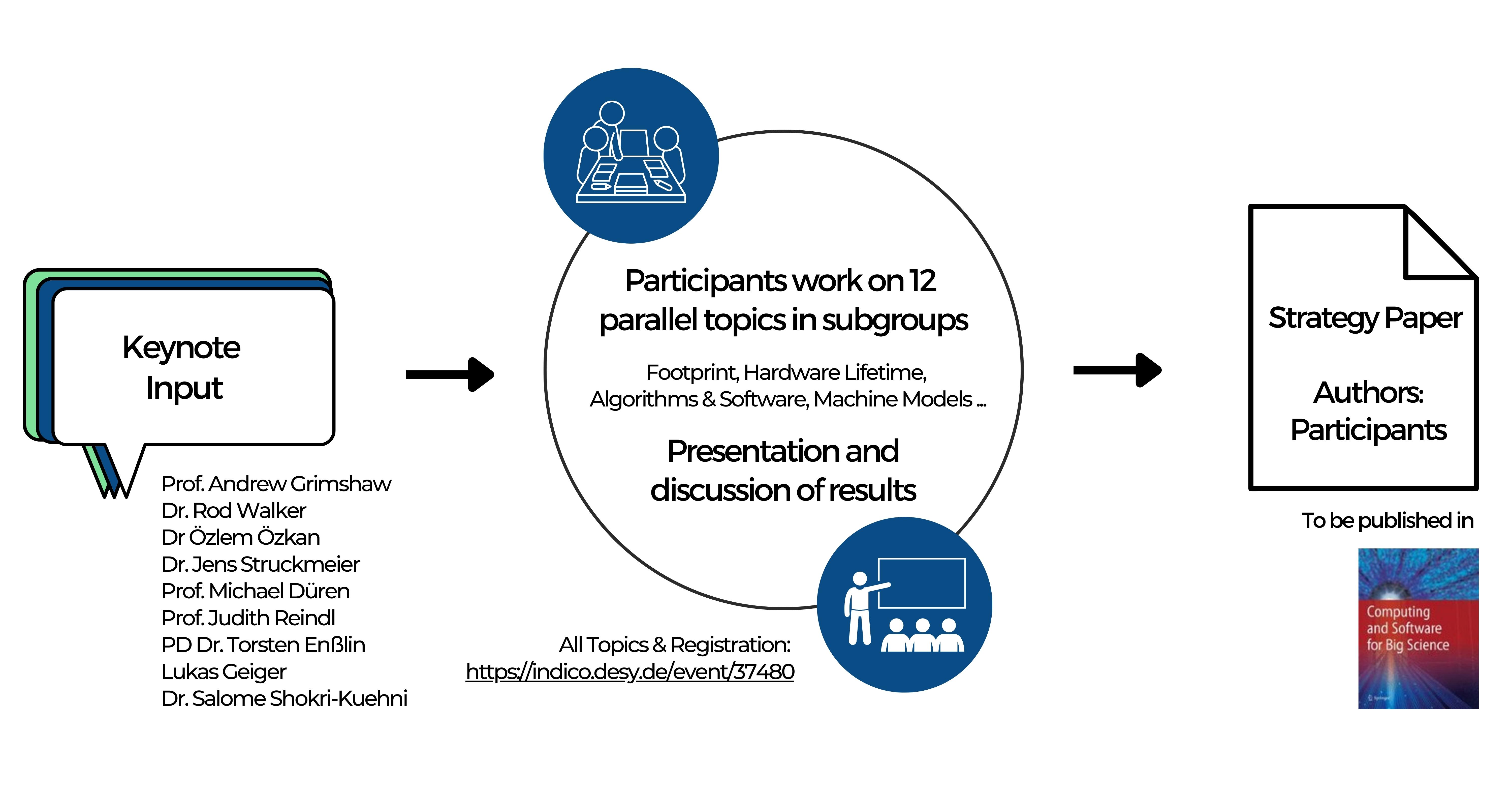Workshop: Sustainability in the Digital Transformation of Basic Research on Universe & Matter
Landhaus Nordhelle, Meinerzhagen
The creative workshop develops Strategic concepts for sustainability in the digital transformation of basic research on universe & matter - from the funding applications on. The workshop program focuses on working sessions with below-mentioned guiding questions. The 6 sub-groups of ca. 5 participants will gather relevant information for the final report which will be published timely after the workshop (CSBS Journal). Keynote presentations by high-profile experts will inform participants and stimulate discussions. Key measures will concern education, research and innovation, in line with the BMBF's sustainability goals. We encourage young scientists and experienced scientists to participate in order to enable broad discussions.
The Workshop is hosted over 4 days at Landhaus Nordhelle in Meinerzhagen by the community organization DIG-UM with support from the BMBF-funded ErUM-Data-Hub.
A fee of 350€ will be charged for participation in the course. The workshop fee includes the cost of the workshop, accommodation and catering.
Please take note of the current Corona measures linked here.
.jpg)
